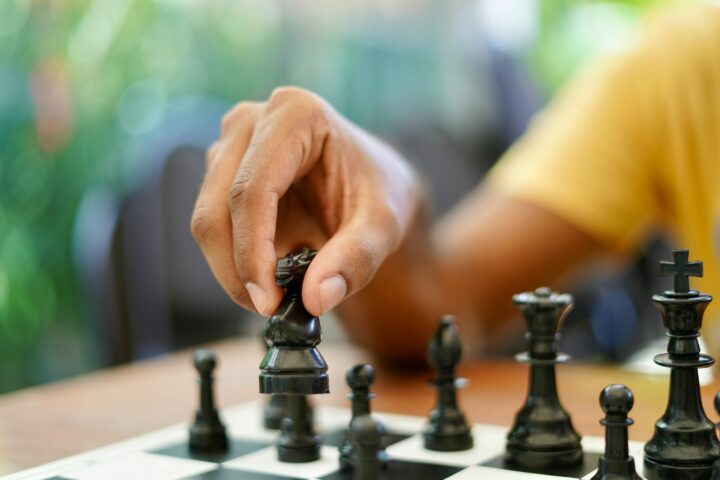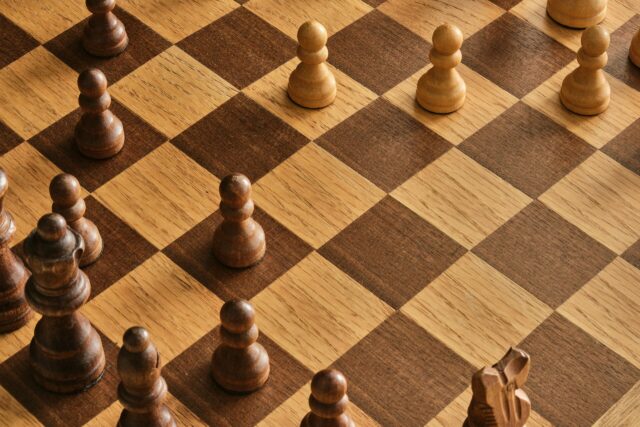Chess is a game of strategy and foresight, where every move counts. The opening phase of a chess game sets the stage for the battle ahead, determining the initial positioning and plans of both players. Memorizing chess openings is a crucial skill for any aspiring player, as it provides a solid foundation for navigating the complexities of the middle and endgame.
While some players may rely on their intuition or improvisation during the opening, mastering the art of memorizing chess openings can significantly enhance your gameplay. It allows you to effortlessly recall established sequences of moves, giving you a head start and an advantage over your opponents. But what is the best way to approach this formidable task?
In this guide, we will explore various techniques and strategies to help you memorize chess openings effectively. From mnemonic devices to visualization exercises, we will delve into the tactics employed by seasoned players and share expert insights to make the process enjoyable and fruitful. Whether you are a beginner eager to learn the basics or an experienced player aiming to expand your repertoire, this guide will equip you with the tools to enhance your opening knowledge and elevate your game to new heights.
So, grab your chessboard, clear your mind, and let’s embark on a captivating journey of mastering the best ways to memorize chess openings. Prepare to unlock the secrets of the chessboard and sharpen your mental prowess as we delve into the realm of opening mastery.
Why are Chess Openings Crucial for Success?
Chess openings lay the foundation for the entire game, playing a crucial role in a player’s success. They determine the initial placement of pieces, the control of the center, and the overall strategy. By studying and memorizing chess openings, players gain a deep understanding of the positional ideas, tactical themes, and common plans associated with specific opening variations.
This knowledge allows them to make informed decisions and adapt to their opponent’s moves more effectively. Strong opening knowledge not only provides a sense of confidence but also sets the stage for a well-executed middle game and endgame.
What Makes Memorizing Chess Openings Challenging?
Memorizing chess openings can be a daunting task for several reasons. First and foremost, there is an immense number of possible opening variations, each with its unique nuances and strategic objectives. The sheer volume of information can overwhelm even the most dedicated players. Additionally, openings evolve over time, with new variations and ideas constantly emerging.
This necessitates the need for continuous learning and adaptation. Furthermore, some openings require a deep understanding of positional concepts, while others rely heavily on tactical maneuvers. Balancing the memorization of moves with grasping the underlying principles can be a challenging aspect for players.

Is There a One-Size-Fits-All Approach to Memorizing Openings?
While there is no definitive one-size-fits-all approach to memorizing chess openings, players can tailor their methods to suit their learning styles and preferences. Some individuals may find success in using mnemonic devices to remember move sequences, while others may prefer a more analytical approach, focusing on understanding the strategic ideas behind the moves.
It is essential to experiment with different techniques, such as flashcards, repetition drills, or even studying annotated games, to find the approach that resonates best with individual learning styles. Adaptability and willingness to explore various methods are key to finding an effective memorization strategy.
How Can Visualization Techniques Enhance Opening Memorization?
Visualization techniques can significantly enhance opening memorization by improving a player’s ability to mentally project and foresee moves and positions. By actively visualizing the board and imagining the consequences of different moves, players develop a deeper understanding of the interplay between pieces and the potential outcomes of specific opening sequences.
Visualization exercises, such as mentally replaying annotated games or solving tactical puzzles in the mind, strengthen the cognitive connections required for retaining and recalling opening moves. As players become more adept at visualizing the board, their ability to memorize and apply opening variations improves.
Should Chess Players Focus on Studying Classical or Modern Openings?
The choice between studying classical or modern openings largely depends on a player’s style, preferences, and goals. Classical openings, such as the Ruy Lopez or the Queen’s Gambit, have stood the test of time and offer a solid foundation for strategic understanding.
They have been played by many great chess masters and offer a wealth of annotated games for study. On the other hand, modern openings, like the King’s Indian Defense or the Grunfeld Defense, often involve more dynamic and unbalanced positions, allowing for creative and aggressive play.
It is advisable for players to strike a balance between studying both classical and modern openings, gaining a well-rounded repertoire that suits their playing style and keeps them abreast of current trends.
Can Pattern Recognition Improve Opening Retention?
Pattern recognition plays a crucial role in opening retention and understanding. As players study and memorize opening moves, they begin to recognize recurring patterns, themes, and tactical motifs.
By identifying these patterns, players can more readily recall moves and plans associated with specific positions, streamlining the memorization process. Pattern recognition also enables players to make intuitive decisions based on familiar positions, saving valuable time and mental energy during gameplay.
Regular exposure to annotated games, solving tactical puzzles, and analyzing common structures and piece placements all contribute to developing a keen sense of pattern recognition, ultimately enhancing opening retention and overall chess proficiency.
The Role of Repetition: How Much is Too Much?
Repetition plays a vital role in memorizing chess openings, as it helps reinforce the neural pathways associated with specific moves and sequences. However, finding the right balance is crucial. Too much repetition without active engagement can lead to mindless memorization without true understanding.
It is important to combine repetition with active learning techniques, such as analyzing the rationale behind each move, studying annotated games, and practicing variations against opponents. By striking a balance between repetition and active learning, players can solidify their opening repertoire and develop a deeper understanding of the strategic ideas behind the moves.
| Aspect | Classical Openings | Modern Openings |
|---|---|---|
| Origin | Developed in the 18th and 19th centuries | Evolved in the 20th and 21st centuries |
| Complexity | Generally more straightforward | Often involve complex strategic ideas |
| Popularity | Still widely played and studied | Gaining popularity among top players |
| Flexibility | May offer less flexibility in some positions | Often provide more flexible options |
| Strategic Focus | Emphasize central control and development | Can focus on various strategic themes |
Are Mnemonic Devices Effective for Memorizing Chess Openings?
Mnemonic devices can be powerful tools for memorizing chess openings. These memory aids provide a way to associate moves with memorable images, phrases, or acronyms. By creating vivid mental connections, players can more easily recall the sequence of moves during a game.
Mnemonic devices can be particularly helpful for remembering long and complex variations. However, it is important to note that while mnemonic devices can aid in memorization, they should not replace a genuine understanding of the underlying principles and strategies of the openings. They should be used as supplementary tools alongside active learning methods.

Is Deep Understanding More Important than Memorization?
While memorization is an essential component of opening mastery, a deep understanding of the underlying concepts and strategic ideas is equally, if not more, important. Memorizing moves without comprehending the reasoning behind them leaves players vulnerable to unexpected deviations or unfamiliar positions.
Deep understanding allows players to adapt and make informed decisions based on the principles governing the opening. It is crucial to study annotated games, analyze key positions, and grasp the positional nuances associated with specific openings. By combining memorization with a deep understanding, players can navigate the opening phase with confidence and flexibility.
Should Chess Players Prioritize Learning Opening Principles or Specific Moves?
A balanced approach is key when it comes to prioritizing learning opening principles versus specific moves. Understanding the underlying principles provides a foundation for decision-making and strategic thinking, allowing players to navigate various opening variations.
However, memorizing specific moves is necessary to ensure familiarity with common sequences and prevent falling into early traps. It is advisable for players to start by grasping the basic principles of openings, such as controlling the center and developing pieces harmoniously, before delving into specific move orders.
By striking a balance between principles and moves, players can build a strong opening repertoire and make informed decisions based on the strategic ideas of each opening.
How Can Chess Databases Aid in Opening Memorization?
Chess databases are invaluable resources for opening memorization. They provide vast collections of games, allowing players to explore different variations, study annotated moves, and understand the strategic ideas behind various openings.
Chess databases offer the opportunity to analyze games of strong players, observe common themes and plans, and uncover potential improvements in existing opening lines.
They also enable players to organize and categorize their repertoire, making it easier to review and refresh opening knowledge. By utilizing chess databases, players can expand their opening repertoire, stay updated on current trends, and deepen their understanding of opening theory.
Is It Worth Investing in Chess Opening Books?
Chess opening books can be highly valuable resources for players looking to enhance their opening knowledge. Opening books provide comprehensive analysis, explanations of key moves and plans, and insights from experienced players and experts.
They often present detailed variations and strategic ideas, allowing players to deepen their understanding of the openings they study. Opening books are particularly useful for players who prefer a structured and in-depth approach to learning, as they offer a more comprehensive exploration of specific openings.
However, it is important to choose opening books that align with the player’s skill level and goals. While investing in chess opening books can be beneficial, it should be supplemented with other resources, such as chess databases and online materials, to ensure a well-rounded learning experience.

The Bottom Line
Memorizing chess openings is a valuable skill that can significantly enhance a player’s performance on the chessboard. While there is no one-size-fits-all approach to opening memorization, several effective techniques and strategies can aid in the process.
It is crucial to strike a balance between memorization and deep understanding, as a solid grasp of the underlying principles and strategic ideas is essential for adapting to various positions and making informed decisions. Visualization exercises, mnemonic devices, and pattern recognition can all contribute to improving opening retention and recall.
Additionally, utilizing resources such as chess databases and opening books can provide valuable insights and expand one’s repertoire. Ultimately, the best way to memorize chess openings varies from player to player, and it is important to experiment, adapt, and find a personalized approach that suits individual learning styles and goals.
With dedication, practice, and a combination of effective techniques, players can unlock the secrets of opening mastery and elevate their chess game to new heights.




